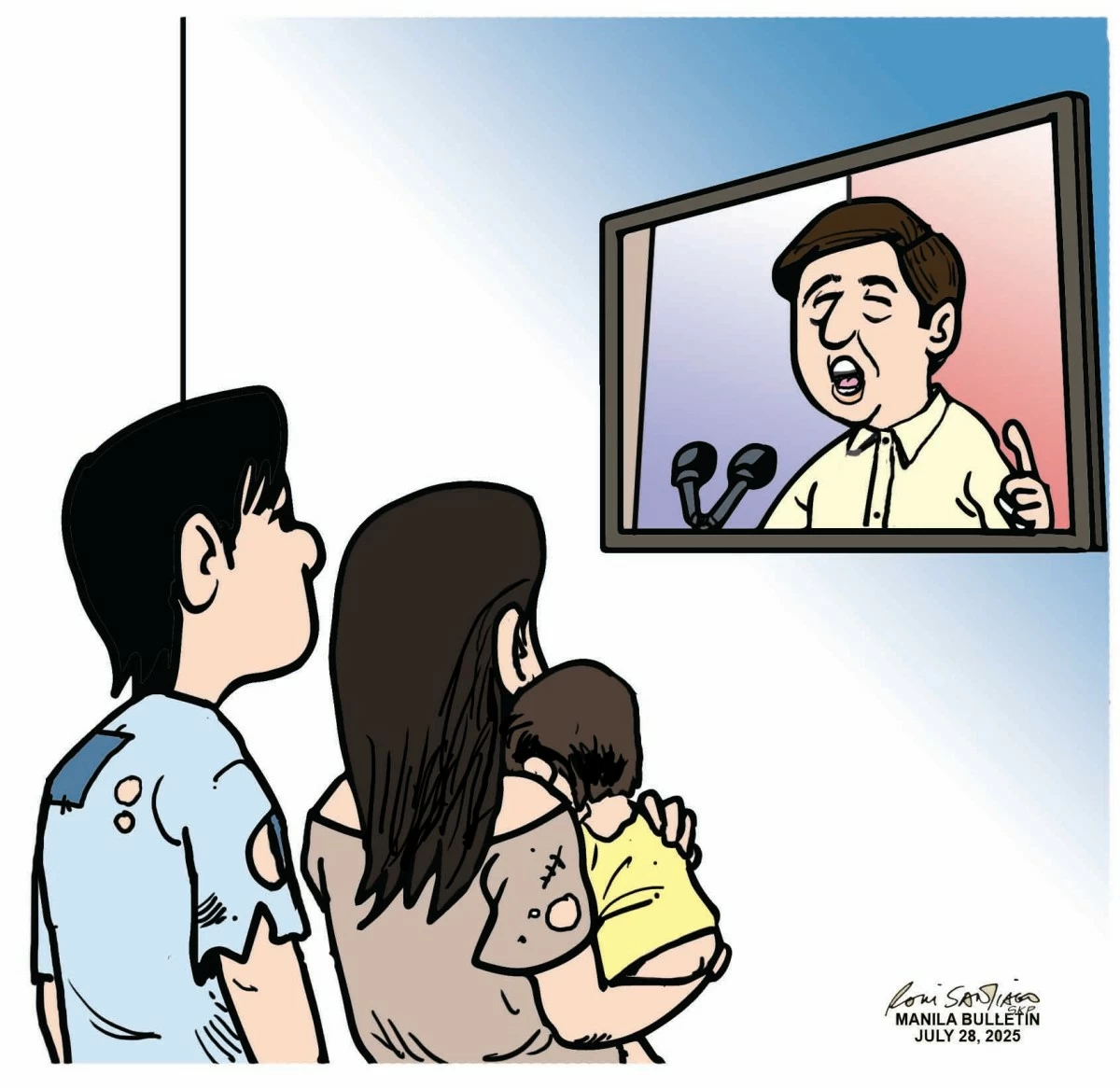
Upgrade to High-Speed Internet for only ₱1499/month!
Enjoy up to 100 Mbps fiber broadband, perfect for browsing, streaming, and gaming.
Visit Suniway.ph to learn

FROM THE MARGINS
In the wake of Typhoon Crising, as many communities across the Philippines struggled to recover from widespread flooding and displacement, Typhoons Dante and Emong entered the country, compounding the damage and deepening the uncertainty for thousands. It is hard to describe what it feels like to live in a place where one disaster barely ends before another begins, but moments like this underscore the importance of our work in helping impoverished and vulnerable communities.
While watching the news and mobilizing aid for affected members of our microfinance communities, I find myself returning to a familiar question: Why do I keep writing? Especially now, when the headlines scream of calamity and chaos, and the needs on the ground seem far more pressing than anything a book can offer. What place does writing have in times like these?
Yet, just days ago, we gathered at Fully Booked in Bonifacio Global City to mark the launch of Opening Doors in Mindanao, which I co-authored with Pia Yupangco. It was a modest gathering, but one rich in meaning. Last year, in the same venue, we launched Covering Nanay, a book about how microinsurance helps women and their families cope with risk and recover from crisis. Opening Doors tells a new but similar story — one about inclusion, identity, and the journey of making Shari’ah-inspired financial services accessible to Muslim communities in Mindanao.
Neither book was written for mass appeal. Neither promises commercial success. But both were written with conviction — rooted in the belief that some stories, no matter how quiet or complex, deserve to be told. Especially in times like these, when the country’s most vulnerable are once again shouldering the brunt of nature’s fury.
Covering Nanay is the story of CARD Pioneer Microinsurance, Inc. — a pioneering joint venture initiative that brought the idea of non-life microinsurance into communities where trust was fragile and risk was constant. In a country where poverty is rampant, “resilience” is a word we hear often. But this book pushes us to think deeper: What if resilience didn’t have to be heroic? What if we could equip families — especially mothers — with tools to protect themselves, rather than rely solely on their ability to recover?
Through stories of struggle and innovation, missteps and hard-earned lessons, Covering Nanay is both an honest chronicle of building a sustainable microinsurance program, and a tribute to the wisdom of nanays, whose belief in microinsurance helped it take root and grow.
Opening Doors in Mindanao, meanwhile, took shape over several years — from our Paglambo Program and CARD Bank’s opening of the first Islamic bank branch in Mindanao. It required a different kind of listening to Muslim communities — groups who had been previously excluded from many financial services due to their religious beliefs. Serving them was unfamiliar territory for us. But we believed that true financial inclusion required more than scale; it required relevance, respect, and humility.
Thus, this book is not just a record of a program. It is a story of how trust is built, of how bridges are formed when institutions listen deeply and act with sincerity. It is a reminder that inclusion is not just about access — it is about belonging.
These two books were written not despite the storms, but because of them. They emerged in the spaces between calamities, in the stillness of recovery, and in the urgency of knowing that stories from the margins often go unheard.
As we look around today, with parts of the country still under a state of calamity, these books remind us of our capacity not to change everything, but to change something. That beyond statistics and headlines are people: women taking out insurance for the first time, families rebuilding after loss, communities welcoming new financial tools that reflect who they are.
This article, like the books, is a tribute — to all those who work quietly for financial inclusion, for poverty eradication, for dignity. To the microfinance field staff wading through floodwaters to check on members. To the partners and experts who lent their wisdom to our Shari’ah journey. To the community leaders who trusted us enough to let us in. To every nanay, every borrower, every believer in the possibility of change.
And to our fellow Filipinos affected by the typhoons: know that your courage is seen. Your grief is not forgotten. And your resilience, though often romanticized, is real — and it deserves more than admiration. It deserves action, protection, and sustained support.
We cannot stop the storms. But we can continue the work of building safer and more inclusive systems. We can write stories that keep people visible. When we meet each other with compassion and walk together with purpose, we do not just survive the rain — we find ways to rise.
* * *
“Not all of us can do great things. But we can do small things with great love.” - Mother Teresa
(Dr. Jaime Aristotle B. Alip is a poverty eradication advocate. He is the founder of the Center for Agriculture and Rural Development Mutually-Reinforcing Institutions (CARD MRI), a group of 23 organizations that provide social development services to eight million economically-disadvantaged Filipinos and insure more than 27 million nationwide.)

 6 hours ago
1
6 hours ago
1



